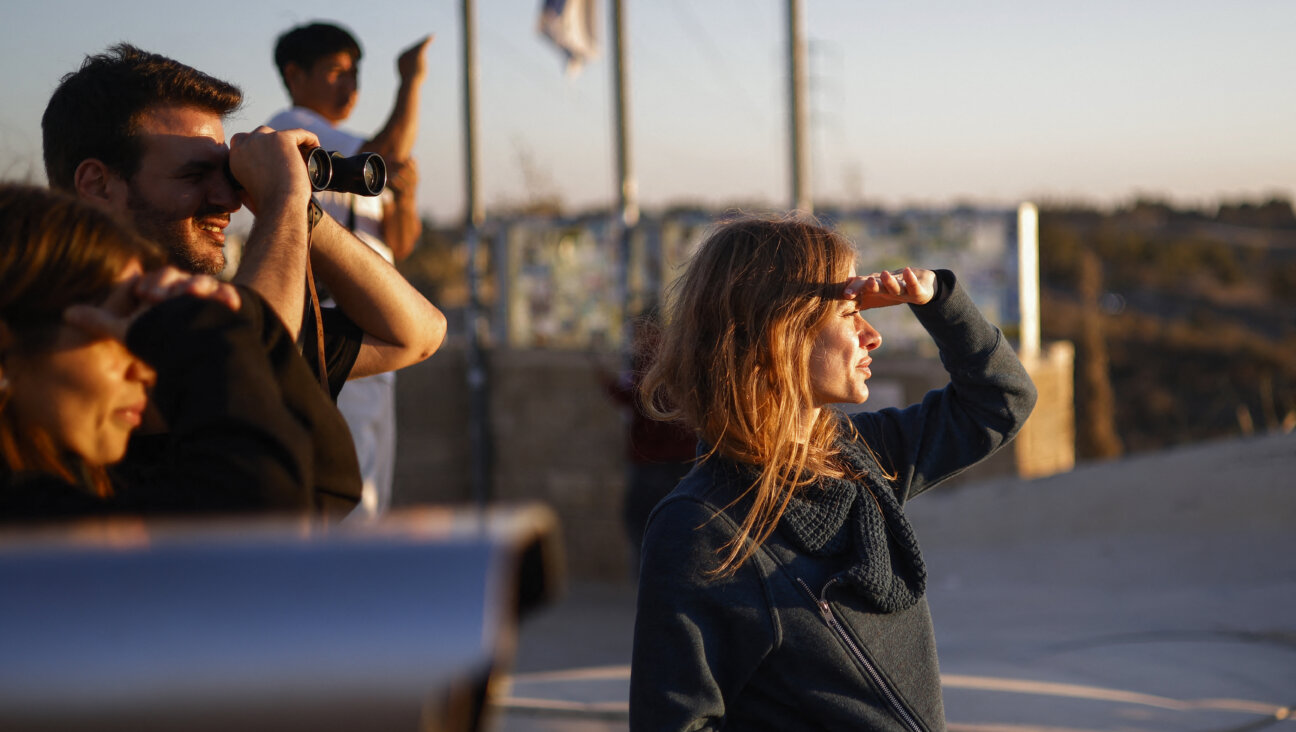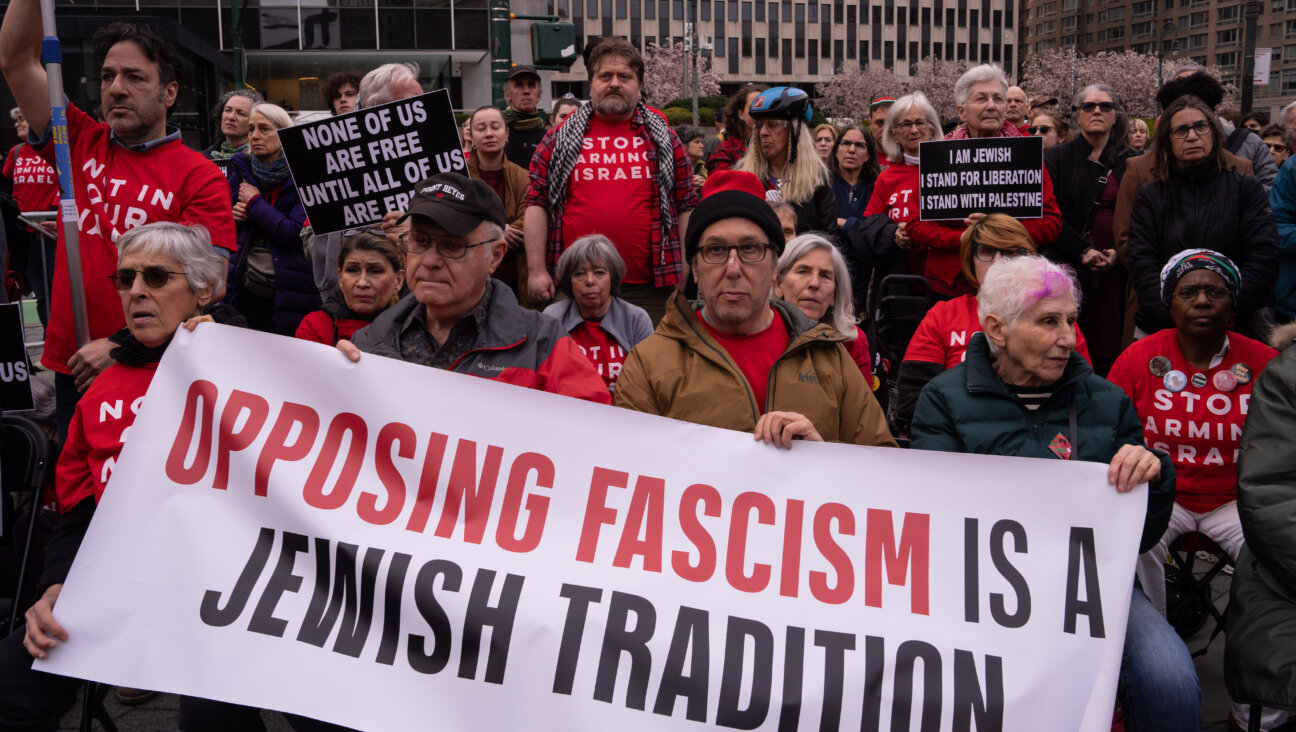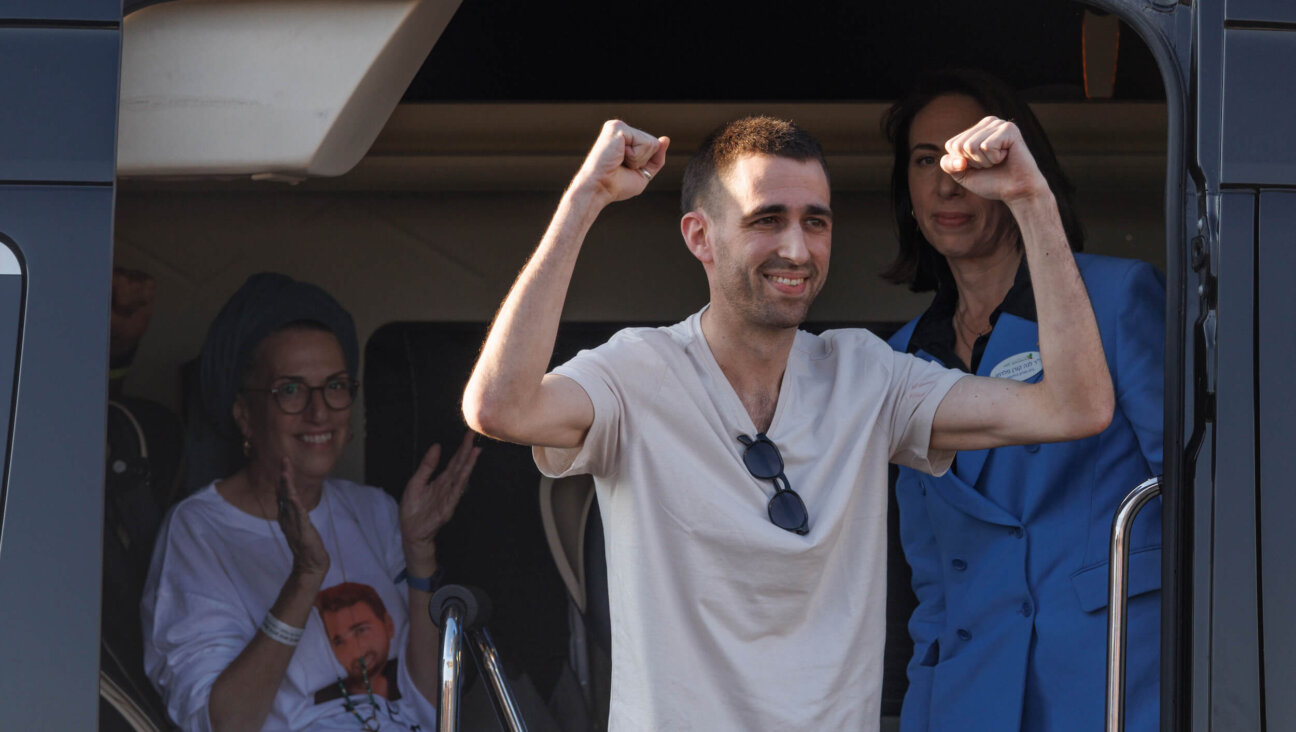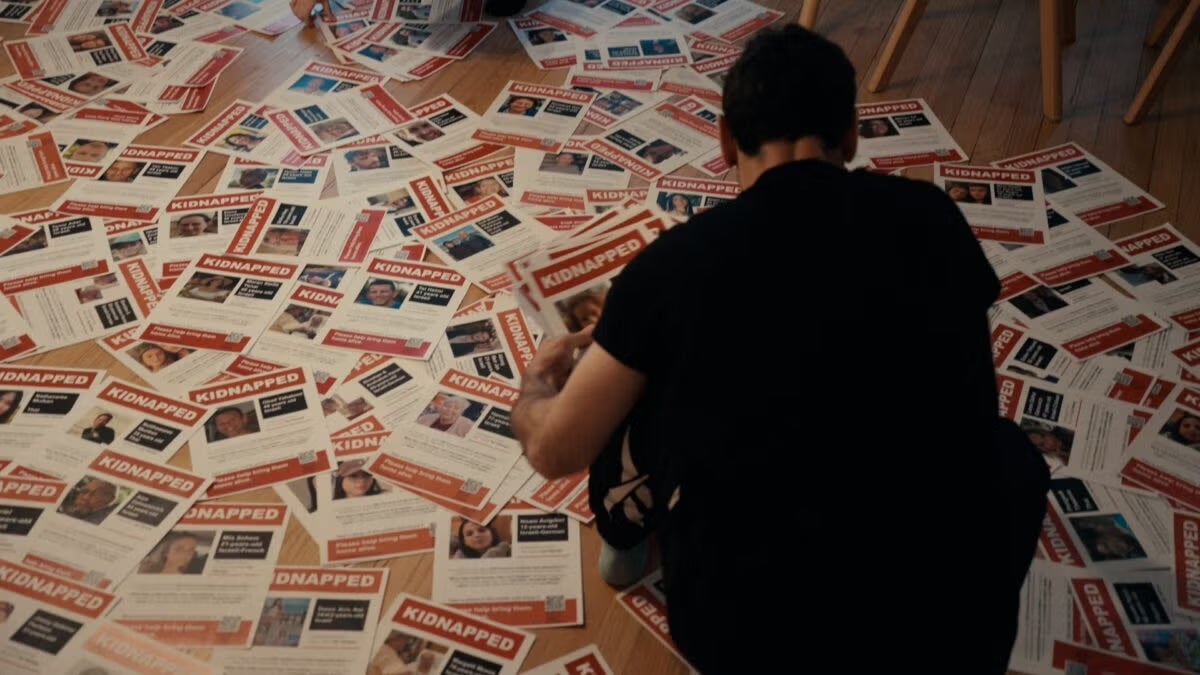Has The BDS Movement Transformed the Israeli-Palestinian Debate?

Pro-Palestinians activists demonstrate in 2010. Image by Getty Images
Sign up for Forwarding the News, our essential morning briefing with trusted, nonpartisan news and analysis, curated by senior writer Benyamin Cohen.
Welcome back to Jane Looking Forward. If you wish to continue reading this weekly newsletter, please subscribe here. And spread the word!
Nathan Thrall, director of the Arab-Israeli Project at the International Crisis Group, last week published a lengthy, well-researched, disputable and extremely disturbing essay in the Guardian arguing that the movement to boycott, divest from and sanction Israel has utterly transformed the Israeli-Palestinian debate. If you can spare the time, I recommend reading it.
Thrall may be exaggerating the extent to which BDS has changed everything about the conflict — that’s part of what I consider disputable.
And he argues that ultimately BDS is exposing the fundamental flaw in Israel’s founding. “The emergence of the BDS movement has revived old questions about the legitimacy of Zionism..,” he writes. “Above all, it has underscored an awkward issue that cannot be indefinitely neglected: whether Israel, even if it were to cease its occupation of the West Bank and Gaza, can be both a democracy and a Jewish state.”
Yes, Israel can be both a democracy and a Jewish state – another point of dispute. But Thrall assembles a strong case for why the movement has challenged the two-states-for-two-people consensus. And this is what I found so dismaying.
Is BDS’s goal to end the Israeli occupation of Palestinian land meant for a separate state, or to end Jewish sovereignty in all of Israel? Is it about 1967, or 1948? And is the final destination two states or one?
This has long been my fundamental concern about the BDS movement, and why I cannot support it. Mine is, I appreciate a diaspora Jew’s way of looking at this. If I were a Palestinian suffocating under Israeli oppression and an ineffective, corrupt Palestinian leadership, I might have given up hope for a two-state solution and view BDS as a non-violent tactic to achieve equal rights in a bi-national state.
Indeed, while I’ve met Palestinians who do not support BDS and still believe two states are possible, their numbers are shrinking. A recent survey showed Palestinian support for two states decline from 52% to 43% in the last year. (Then again, the same poll showed Israeli support dropping from 47% to 43%.)
But I’m not Palestinian, nor Israeli. As an American Jew who still believes — perhaps contrary to all indications — that a peaceful compromise is possible, I think that Thrall is right to point out how the BDS discourse makes it more difficult for progressives to be both pro-Israel and anti-occupation.
We saw that play out in the unusual move J Street took last week in rescinding its endorsement of Rashida Tlaib, who is set to become the first Palestinian Muslim woman elected to Congress, after she advocated for a one-state solution to the conflict. As my colleague Batya Ungar-Sargon wrote, J Street’s position mirrors that of most American Jews, who favor a two-state solution.
“Many American Jews — like many Jews worldwide — hear in the call for a one-state solution a call for the dissolution of the world’s only Jewish state. The way they see it, a one-state solution would have a Palestinian majority rather than a Jewish one, so proponents of a one-state solution are advocating for a world in which Jews don’t deserve self-determination like all other peoples,” Ungar-Sargon wrote.
“And yet, American Jews are also deeply uncomfortable with Israel’s occupation of the Palestinians, and long to see a Palestinian state alongside the Jewish one.”
The irony is, as Thrall points out, that both the nationalists in the Israeli government and the bi-nationalists of the BDS movement are more and more becoming one-staters. They each expect to dominate, and therefore to win. And those of us who see value in both narratives, who seek to validate both national aspirations, are increasingly lonely.
Whether BDS is a cause, or a symptom, I can’t say. But is it a major factor? That is beyond dispute.
#FreePress. I was proud that the Forward participated in a nationwide concerted effort last Thursday to enunciate why a free press is so necessary. (Here’s my editorial. Thank you to all who wrote in support, and thank you to those who took the time to criticize, too. We want to be taken seriously, to engage and improve.
What you might not know is that among the hundreds of news outlets were many from high schools and colleges around the country. The Student Press Law Center, whose board I chair, collected many of these statements, and they are just as inspiring as their professional counterparts.
Stirring though this was, there is a real question as to what effect this will have on an industry facing innumerable challenges. Margaret Sullivan, the media columnist at The Washington Post, argued that more and deeper collaboration is the next step.
As an example, she cited the work of ProPublica, a nonprofit that teams up with other news outlets to produce and publish investigative work. I’m pleased that we recently co-published one story with ProPublica, and hope to do more.
What else I’m writing. After Forward senior columnist Peter Beinart was detained at Ben Gurion International Airport on his way to a family bat mitzvah in Israel, I asked why the Netanyahu government thinks it’s necessary to treat journalists and activists like would-be terrorists. Here’s my column.
Looking forward. This newsletter is one of many that the Forward sends out every week — providing an invaluable line of communication with about 100,000 readers. But we know that there’s room for improvement.
So starting this week, you will notice changes in the regularity and content of our many newsletters. To begin with, the opinion newsletter will now be published on Tuesday and Thursday afternoons; the culture newsletter will go out only on Wednesdays.
Stay tuned for further developments.
And if you have not yet taken this survey, please do! I treasure your feedback on Jane Looking Forward.
Remember to email me at [email protected]. with your questions and concerns.
I’ve had lots of warm responses to Jane Looking Forward. If you’d like to invite someone to this newsletter community, here’s the link to sign-up. Thank you!















